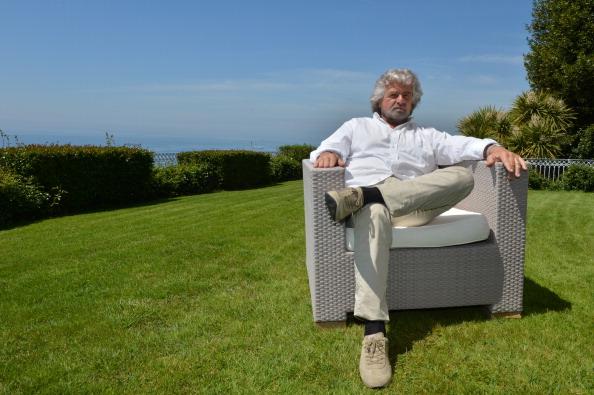Giuseppe Grillo who holds celebrity status in Italy, was barely known to the rest of Europe let alone the rest of the world, until the most recent Italian election. Grillo’s 5-Star movement finished a strong third behind established parties and the world is getting to know former comedian “Beppe” Grillo.
Because his “5-Star” movement gathered more than 20 percent in both houses of the Italian parliament, neither the conservative party around Mr. Berlusconi, nor the socialists around Per-Luigi Bersani can form a government.
Since Italy is vital to the functioning of the European Union (EU), especially the Eurozone, and the Eurozone is a vital part of the world economy, the world is suddenly listening to what Mr. Grillo has to say.
“Italy is de facto out of the euro. The Northern European nations keep supporting Italy until their banks recoup the investments they made in Italian bonds. After that they will drop us like a hot potato,” he told German daily Handelsblatt in an interview published March 13.
Given his background and outspoken nature it is hardly surprising that mainstream politicians and media focus on his job as a comedian, portraying him as somebody who doesn’t know what he is talking about.
British magazine the Economist, labeled him a clown and an “economic novice.” German socialist politician Peer Steinbrück, who is running for chancellor this September, also called him a clown.
However, a talk the trained accountant gave in 1998 proves otherwise. Grillo managed to explain the intricacies of a fractionally reserved monetary system in about ten minutes and he made the audience laugh while doing so; no small feat for a comedian, let alone an economist.
In a recent interview with Handelsblatt he again demonstrated his economic proficiency and his commitment to democracy. “Look at what is happening in Greece with [the neo-Nazi party] Golden Dawn. We on the other hand are doing democracy a favor.” How so?
“We want that laws are discussed in the parliament but also on the internet. Today bureaucracy has replaced democracy. The community of citizens has to become the state.” In practice, this would mean a referendum about the euro and parts of the controversial EU Lisbon Treaty, which according to Grillo bypasses the Italian constitution.
In terms of solving Italy’s budget problems his policies are neither socialist nor conservative, they are pragmatic. He proposed help for small and medium sized enterprises which hire people under 35 and invest in research and development. He wants to cap executive pay at 12 times the average salary but wants shareholders to actually determine the remuneration.
To save money, he proposes withdrawing the Italian army from Afghanistan ($1.29 billion per year), cut newspaper subsidies (ca. $1.3 billion per year) and slash spending on politicians’ pensions, who in some cases receive more than $13,000 per month after serving only one term as a deputy or senator. This measure alone would save Italy $16.8 billion per year.
Despite predicting no growth in Italy for the next five to ten years, he speaks about an alternative route for development, and is optimistic long-term.
“I think this country can manage a re-start. We have businessmen and engineers that make the world jealous. We have scientists all around the world. I want them to come back and this country to have hope again. And this hope is us.”





